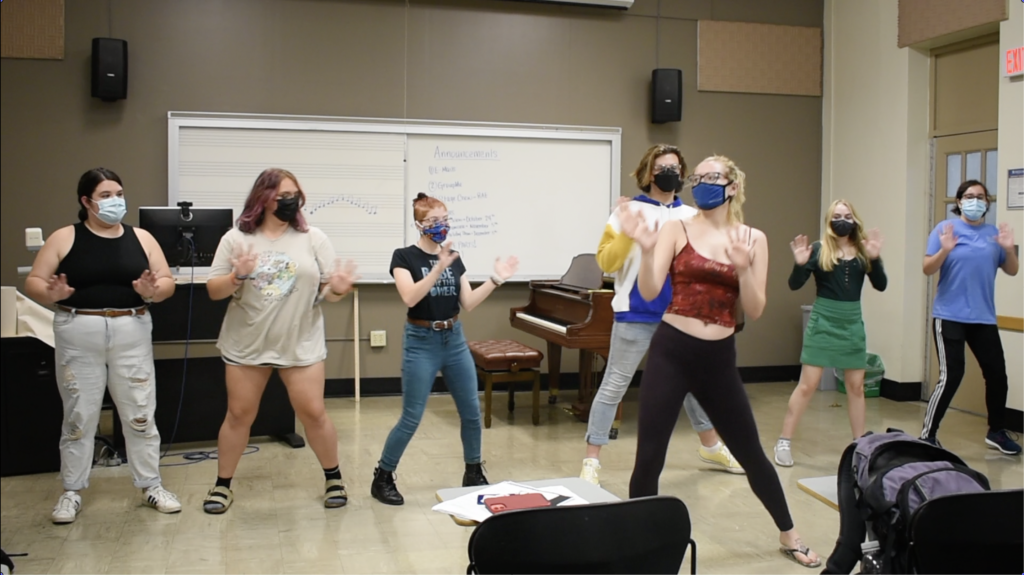NIKKI INDELICATO
Assistant Life & Arts Editor
This semester, clubs on campus were finally able to return to normal after restrictions regarding in person gatherings and larger club events were lifted. Unfortunately, some clubs weren’t able to weather COVID-19’s storm unscathed.
As a result of the pandemic, many clubs ended up being shut down due to low involvement from students. The appeal of joining a club to make friends and meet new people just wasn’t the same over a Zoom screen for many students.
At the start of the semester, according to the Student Association, SUNY Fredonia offered roughly 170 different clubs that could pique anyone’s interest. Out of the 170 clubs, around 30 of them became disbanded because of the low activity.
“I think it was because of academics and there was a lack of communication between the clubs and their advisors,” said Jackson Berry, SA Speaker.
While many of those clubs were able to survive from the start of the semester, as time went on, some of the clubs, like Noteworthy, SUNY Fredonia’s only show choir, struggled to keep the number of students up.
“Lots of clubs, especially singing clubs, took a big hit with COVID,” said Rae Wieser, a freshman childhood inclusive education major and Noteworthy stage manager. “People didn’t want to do it because they don’t like wearing a mask and singing.”
At the start of the semester, Noteworthy only had two returning students to the group because the former members had either new commitments or they had graduated the previous school year.

During the midst of the pandemic, many students were unable to train underclassmen to fill their positions after they graduated, which made training new e-board members especially difficult.
While recruiting new members was a struggle, Noteworthy was able to start the Fall 2021 semester with 12 new members to add to the group.
As the semester progressed, members slowly started to leave the group due to new commitments. The group went from 12 members to seven.
Even with the low numbers, the group still persevered and created shows that showcased each of their members. It also helped the group since the school allowed for in person meetings rather than strictly sticking to Zoom. “People who stuck past the first rehearsal seemed to really enjoy themselves. We tried to make it as interactive as possible so we all could really get to know each other,” said Wieser.
The group is still looking forward to gaining some new members at the start of the spring semester.
“By bringing in more people, it helps all of us meet more people and that’s what clubs like this are for. It’s to find people with similar interests and make friends,” said Wieser.
Not all groups had a story like Noteworthy. For Fredonia Radio Systems (FRS), the club was able to gain numerous new members.

“It took a while, but eventually, we did get there. We were just like ‘Hey, do you like music?’ ‘Hey, do you like this?’ ‘Do you like organizing?’ We tried to play along on what people liked even if it had nothing to do with music or radio,” said Yisel Fernandez, a junior double major in music industry, and business and finance accounting, and general manager of FRS.
One of the most common issues clubs faced this semester while trying to recruit new members was many students not having the time to commit to a club. FRS also faced this challenge.
“It was hard for a lot of clubs to kind of gauge what people would want to join and not join,” said Mel Fajardo, junior double major in business administration, marketing and music industry and program director at WDVL. “I think COVID has really put people in a different position as to if they want to join clubs or not or if they have time.”
It was up to the perseverance of FRS to keep its members’ spirits up in order to get new members to join the station.
Last year, the radio station, located in McEwen Hall, was limited to e-board members only, while everyone in the general body had to meet over Zoom due to capacity limitations. With the group having almost an entirely new e-board, the club is still working on adjusting to the new normal.
Just like with Noteworthy, after a year of meeting virtually, being in person helped interest students to come and see what FRS was all about.
“People couldn’t come in here, there was a capacity limit and only e-board members could show up. It took away from FRS being what it usually is,” said Fajardo.
“Eventually, people did start trickling in and then now we have a lot of people in the station,” added Fernandez.
Even though recruitment was a struggle for many clubs throughout the semester, many are still looking forward to a fresh start and new memories to kick off the spring semester.
